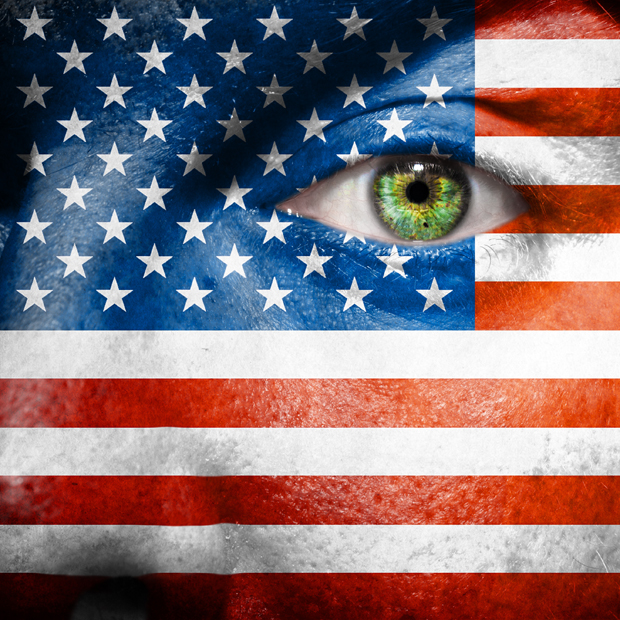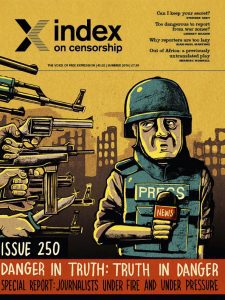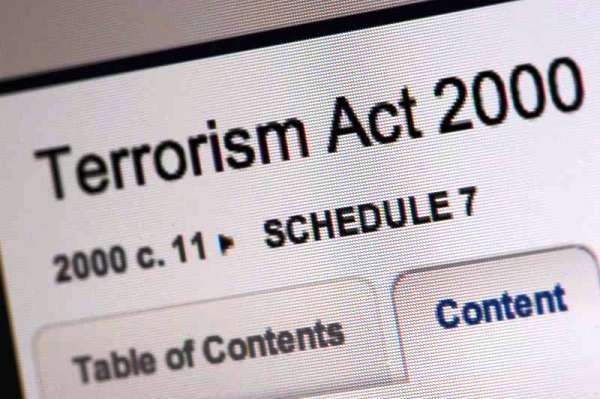8 Oct 2013 | News and features, Politics and Society, The climate crisis, United Kingdom, United States

(Photo Illustration: Shutterstock)
The continuing advance of climate science, as reflected in the Intergovernmental Panel on Climate Change’s recently released Fifth Assessment Report, points ever more strongly to the need for an expedited phase-out of carbon emissions from fossil fuels. Only a fundamental transformation of the current energy system during the coming decades may make it possible to avert disastrous impacts of global climatic disruption.
Carrying out such a transformation would be a political, economic, and technological challenge under the best of circumstances. But it is made especially difficult by corporate and ideologically driven opposition — most notably, by pressure from fossil fuel production interests to protect their strategic position and set the terms for government policymaking.
The United States and Canada exemplify the power of the dominant energy interests. The governments of both countries strongly support the expansion of domestic fossil energy extraction, production, and export. But the collision between climate science and energy politics, and threats to freedom of communication, are playing out differently in the two countries.
With the Harper government in Canada, for years we have witnessed an ongoing repression of climate and environmental science communication by government scientists, along with systematic cutbacks of environmental research and data collection. “Harper’s attack on science: No science, no evidence, no truth, no democracy“, an excellent review and discussion in the May 2013 issue of the Canadian journal Academic Matters, itemized a series of moves by the Harper government to control or prevent the free flow of scientific information across Canada, particularly when that information highlights the undesirable consequences of industrial development. The free flow of information is controlled in two ways: through the muzzling of scientists who might communicate scientific information, and through the elimination of research programs that might participate in the creation of scientific information or evidence.
It appears that the issues on which government scientists are subjected to the tightest political control of communications include climate change, the Alberta tar sands, the oil and gas industry, and Arctic wildlife. In other words, issues on which free communication of scientific evidence could pose problems for corporate energy development interests.
The situation in Canada has driven government scientists to hold public protest rallies twice in the last year. In September, rallies in major city centers and on university campuses were held across the country.
“It isn’t the way science is supposed to be. It’s not the way science used to be, the way I remember it in the federal government,” IPCC vice-chair and retired Environment Canada scientist John Stone told The Guardian.
So the Harper government can be said to be following in the footsteps — even surpassing — the record of the former Bush-Cheney administration in the U.S., whose alignment with energy industry interests led them to misrepresent climate science intelligence and impede forthright communication by federal climate scientists.
In the U.S., the Obama administration presents a complex picture that differs from Canada in significant ways, but also suggests the problematic nature of government support for expanded fossil energy extraction and production. The administration appears susceptible to industry pressure aimed at playing down the environmental and societal consequences of fossil energy resource extraction and use.
After several years of near-silence on climate change at the highest levels of U.S. political leadership, in June President Obama finally gave a major public address on climate change (the first by an American president) and laid out a multifaceted Climate Action Plan. The plan focuses on actions that can be taken by the White House and Executive Branch in the absence of action by a Congress that is tied in knots, largely subservient to corporate energy interests, and with much of the Republican Party aligned with the global warming denial machine.
Under Obama, we see a more straightforward acknowledgement of climate science and assessments by the most credible experts, and more straightforward communication on climate by federal research agencies. The forthcoming National Climate Assessment, scheduled for release next spring, will address the implications of climatic disruption for the U.S., across geographical regions and socioeconomic and resource sectors (public health, water resources, food production, coastal zones, and so forth). The importance of national assessments for public discourse was underscored when the Bush administration, in collusion with nongovernmental global warming denialists, suppressed official use of and references to the first National Climate Assessment, which had been completed in 2000.
Yet, despite the numerous constructive action items in Obama’s Climate Action Plan, there appears to be a contradiction at the heart of Obama’s policy, as indicated by the administration’s adoption of what they call an ‘all of the above’ approach to energy development. Obama points to increased U.S. fossil energy extraction as a major accomplishment. U.S. energy development includes ‘mountaintop removal’ coal mining in Appalachia, large-scale coal strip-mining on public lands in the West, and increased coal exports; deepwater drilling for oil in the Gulf of Mexico, even in the wake of the BP oil blowout disaster in 2010, and quite possibly drilling in the Arctic Ocean off the coast of Alaska; and a dramatic increase during the past five years in natural gas production using directional drilling technology and hydraulic fracturing of shale deposits that cover a number of large areas across the country.
Natural gas from ‘fracking’ appears to be an essential component of the administration’s climate policy, i.e., relying on the ongoing trend of substitution of natural gas for coal in power plants in order to meet a 2020 goal for reducing U.S. carbon emissions. The Department of the Interior has proposed to open 600 million acres of public land to fracking. But fracking is controversial, raising concerns about contamination of drinking water in affected areas by chemicals used in fracking, large-scale use of water in drilling, air pollution, leaking methane greenhouse gas emissions, and industrial degradation of rural landscapes. Environmental groups have protested at the White House, calling for a moratorium on fracking on public lands.
There are sIgns that the administration may be allowing political pressure from the natural gas industry to compromise investigations by the Environmental Protection Agency into fracking contamination incidents. The EPA has pulled back from several high-profile investigations in a manner that raises questions about whether this indicates a pattern of failure to act on scientific evidence. When the EPA’s scientists found evidence that fracking was contaminating water supplies, the EPA stopped or slowed down their work in in Pennsylvania, Texas, and Wyoming.
“Not only does this pattern of behavior leave impacted residents in the lurch, but it raises important questions as to whether the agency is caving to pressure from industry, antagonistic members of Congress and/or other outside sources,” Kate Sinding at the Natural Resources Defense Council notes. “This trend also calls into serious question the agency’s commitment to conducting an impartial, comprehensive assessment of the risks fracking presents to drinking water—a first-of-its-kind study that is now in its fourth year, with initial results now promised in 2014.” The EPA recently announced that it has delayed the expected final date of this study until 2016 — Obama’s eighth and final year in office. Meanwhile, industry continues to create a fait accompli of radically expanded fracking operations.
Obama has adopted a forward-looking position on climate change. But his ‘all of the above’ energy policy, and particularly his full-speed-ahead support for shale gas fracking, raises the question of whether politics is impeding freedom of communication by government experts — and whether the EPA is thereby being impeded in doing its job of protecting the public against the environmental dangers of fossil fuel development.
This article was originally published on 8 Oct 2013 at indexoncensorship.org
9 Sep 2013 | Digital Freedom, News and features, Politics and Society, United States

(Photo: David von Blohn / Demotix)
It seems you can’t step away from the computer for more than a few hours these days without a story revealing previously secret information about the National Security Agency (NSA) setting the internet aflame. The scandal has sparked an investigative journalism renaissance with virtually every major news organisation in the country—not just the keepers of the Snowden files—getting in on the act.
Several stories of critical significance broke in the last two weeks. First, the Wall Street Journal reported that the NSA’s surveillance system, “has the capacity to reach roughly 75% of all U.S. internet traffic in the hunt for foreign intelligence, including a wide array of communications by foreigners and Americans.” The Journal detailed the NSA’s direct access to telecommunications’ fiber optic cables around the country and their extraordinary reach into many corners of the web.
The next day, the administration finally released the 2011 FISA court opinion ruling some NSA surveillance unconstitutional, making front-page news around the country. The Electronic Frontier Foundation, the organization for which I work, has been suing the Justice Department for its release for over a year. The ruling showed the NSA had vacuumed up more than a 150,000 Americans’ emails, only alerting the court to a collection method that had been in place for three years. The court also accused the NSA of “material misrepresentation regarding the scope of a major collection program” on two other occasions.
Until two weeks ago, the administration had stuck to the talking point that all the privacy violations were unintentional. That was already cold comfort to Americans, as the Washington Post had previously reported, based on Snowden documents, that the NSA has been committing thousands of privacy violations, however unintentional, affecting untold number of people per year. And the numbers seem to be increasing.
Soon after the FISA court opinion was released, Bloomberg News revealed that a still-classified NSA inspector general’s report documented “approximately a dozen” willful privacy over the last decade by the NSA. This contradicted many previous statements by government officials, including NSA chief Keith Alexander, who said “no one has wilfully or knowingly disobeyed the law or tried to invade your civil liberties or privacy” at a speech on August 8.
The Wall Street Journal followed up, detailing how many of these violations consisted of analysts following former spouses or partners (nicknamed “LOVEINT”). The Journal explained that most of the violations were self-reported. How many went unreported we will likely never know.
Couple this with the fact that NBC News reported how Edward Snowden was able to browse the NSA networks for months without detection, and you have an agency which claims it has strict internal oversight procedures in place, but seems to have only one real mechanism for enforcement: self policing.
Amazingly, all of these stories have come since President Obama was forced to address the issue at a press conference just three and a half weeks ago in response to the first wave of stories published by the Guardian and Washington Post. At that point, the sea change in public opinion about civil liberties and privacy had become clear and Congressmen in both parties had been pressuring the White House for weeks. Obama promised more transparency to programs (it’s important to remember he also promised more transparency six years ago when he was first running for president), but there were no concrete proposals for reining in the out-of-control powers of the NSA. He did not even mention the two major stories of the day, one in the Guardian, and the other in the New York Times. Obama did say this, however:
What I’m going to be pushing the [intelligence community] to do is rather than have a trunk come out here and leg come out there and a tail come out there, let’s just put the whole elephant out there so people know exactly what they’re looking at. Let’s examine what is working, what’s not, are there additional protections that can be put in place, and let’s move forward.”
While the full elephant is the only thing that will satisfy the public at this point, disturbingly, Sens. Ron Wyden and Mark Udall, the lone NSA critics on the Senate intelligence committee, cryptically said in a press release after Obama’s press conference that we’ve only learned “just the tip of a larger iceberg.”
Congress is currently on August recess, an annual break where members return to their home districts to hear from their constituents. We can expect some sort of action when they return. Eighteen bills have already been introduced, with many more on their way, and as Politico reported, members from both parties are listening to people at town halls voice their concerns about NSA surveillance, “a sign that fears about the ultra-secret National Security Agency have spread beyond the Beltway as lawmakers embark on their annual town-hall tours.”
Meanwhile, the reporting will only continue, as the Guardian is now sharing some of the Snowden documents with the New York Times and ProPublica after GCHQ disturbingly entered the Guardian offices in London and oversaw the destruction of a copy of the Snowden files.
Early on, the administration and its defenders may have hoped the story would disappear with the next news cycle. It won’t. The NSA scandal is destined to a prime issue in the fall Congressional session, carrying into next year’s midterm elections. The administration’s attempts to calm the public with transparency-after-the-fact PR measures won’t change the narrative.
What we want to see is this headline: “Obama reins in NSA surveillance authority.”
This article was originally published on 9 Sept, 2013 at indexoncensorship.org
22 Aug 2013 | Digital Freedom, Index Reports, News and features, Politics and Society, Religion and Culture, United States
[vc_row][vc_column][vc_row_inner equal_height=”yes” css=”.vc_custom_1493909012654{background-image: url(https://www.indexoncensorship.org/wp-content/uploads/2017/05/USMedia_ReportCover_1460x490-revised.jpg?id=90089) !important;background-position: center !important;background-repeat: no-repeat !important;background-size: cover !important;}” el_class=”text_white”][vc_column_inner width=”1/2″][/vc_column_inner][vc_column_inner width=”1/2″][vc_custom_heading text=”It’s not just Trump” link=”url:https%3A%2F%2Fwww.indexoncensorship.org%2Fnot-just-trump-us-media-freedom-fraying-edges%2F|||”][vc_column_text]
Read our May 2017 review of threats to press freedom in the United States.[/vc_column_text][/vc_column_inner][/vc_row_inner][vc_empty_space height=”20px”][vc_column_text]

(Photo illustration: Shutterstock)
Freedom of expression is generally protected in the US, but political, legal, economic and cultural factors continue to constrain this fundamental right. The First Amendment of the US Constitution prohibits laws that abridge free speech, academic freedoms and the right to assemble are generally protected, and violence against journalists is rare.
National security is used excessively to justify free speech and privacy restrictions.
Revelations over the National Security Agency’s “Prism” programme, which it is claimed gives the US government powers of mass surveillance over web communications, have caused huge concern over the authorities’ attitudes to free speech and privacy.
Government transparency and accountability are also key concerns. The 1966 Freedom of Information Act and various state laws are meant to shine light on classified government documents, but many agencies do not comply with these laws or do so significantly later than mandated and with heavily redacted information. The aggressive prosecution and sentencing of WikiLeaks source Bradley Manning and the pursuit of Edward Snowden highlights the Obama administration’s attitude to whistleblowers.
Beyond security and secrecy, some of the greatest challenges to freedom of expression are linked to rapid shifts in technology and online behaviour so that is for digital section. Money is also key. The Citizens United v. Federal Election Commission Supreme Court case in 2010 extended first amendment rights to corporations and unions, threatening the free speech rights of individuals by diminishing the power of their voices to compete with billion-dollar industries. Although US libel laws generally protect the public interest — public figures must prove actual malice rather than mere negligence to win a suit — “Strategic lawsuits against public participation” (SLAPPs) sometimes silence criticism, as libel actions in the US remain expensive.
Despite these concerns, the state of free expression in the US is generally healthy.
Media Freedom
The US enjoys a free and diverse press, although aggressive political partisanship, the consolidation of media ownership and other financial troubles have threatened this freedom as traditional institutions struggle to stay afloat and adapt to an increasingly digital media landscape. Local and national newsrooms have shrunk, and reporters are overstretched , diminishing the quality of American journalism.
Laws against obscenity, indecency and profanity set out and enforced by the Federal Communications Commission (FCC) restrict what content can appear on free-to-air broadcasting.
Most states have shield laws that protect journalists from revealing their sources, and the Obama administration is proposing a federal shield law, But the government’s prosecution of whistleblowers has raised real concern. The accessing of Associated Press reporters’ phone records in pursuit of leaks has also been a source of alarm.
The Obama administration has been criticised for its aggressive pursuit of whistleblowers and journalists and demands for source information in cases of government secrecy. While the president did sign a Whistleblower Protection Enhancement Act into law in late 2012, the behaviour of the authorities when confronted with leaks has been heavy handed.
Meanwhile, physical attacks by police against journalists and bloggers covering the Occupy movements hurt the US’ ranking in several press freedom indices in 2012.
Digital Freedom
About 75 percent of the population is online, but affordable high-speed broadband remains elusive. Copyright legislation and surveillance currently represent some of the greatest threats to digital freedom of expression.
The latest Google Transparency report shows that the US requests more user data than any other country and issues the second most court orders for content removal behind Brazil. The 1998 Digital Millennium Copyright Act (DMCA) criminalises the circumvention of copyright controls online without regard for how users intend to use the tools. The Stop Online Piracy Act (SOPA) and PROTECT IP Act (PIPA) were shelved in 2012 following highly publicised website blackout campaigns by internet activists and web companies, but intellectual property rights remain a concern with secret negotiations around the Trans-Pacific Partnership trade agreement on-going. Efforts are also underway to reform the 1986 Electronic Communications and Privacy Act (ECPA), which allows the government to access private emails older than 180 days without warrant.
PATRIOT Act provisions and the fact that US telecommunications companies comply with millions of government requests for user data have given Americans cause to self censor their electronic communications. The Cyber Intelligence Sharing and Protection Act (CISPA)[1], which passed through the House of Representatives twice but stalled in the Senate, would have compounded the threat of self censorship by granting companies greater immunity to share private user data with secretive government agencies. In June, it was revealed that the government has been secretly collecting the call records of Verizon customers under the PATRIOT Act and that the National Security Agency can access the servers of Google, Facebook, Apple, Yahoo, Microsoft and others to monitor users’ video calls, search histories, live chats, and emails. Concern is also growing over how domestic drones used for surveillance will affect individuals’ privacy] and how American web companies are in a sense privatising censorship through terms of service that restrict freedom of expression.
Artistic Freedom
The First Amendment protects artistic freedom in the US, but fear of offence still motivates censorship and self-censorship. Nudity, pornography, obscenity and religious sensitivity are among the most common reasons visual art is censored from public space in the US. Censorship typically occurs at the gallery level where art is removed in response to controversy rather than through legal mandate. Donor funding can also dictate the type and content of art displayed. A US university removed a controversial climate change sculpture without warning in May 2012 when it upset a major donor from the energy industry. High sensitivity to political correctness and concerns about marketability sometimes lead artists to self-censor what they produce, and donor funding often dictates the type and content of art that is displayed. A growing trend of online crowdsourced funding for the arts is helping to overcome this barrier for specific projects.
Controversial books are still removed from or kept out of local public libraries across the country — in March 2013, for example, the Chicago public schools authority demanded the graphic novel Persepolis be removed from its classrooms — and music is regularly stripped of violent references and profanity at stores and on radio due to private decisions or Federal Communications Commission mandates.
Increasingly strict copyright laws keep much art out of the public domain despite relatively liberal fair use provisions. Due to copyright extensions, which now extend to 70 years after the creator’s death, many creative works originally due to enter the public domain this year will not do so until 2052.
This article was originally published on 22 Aug, 2013 at indexoncensorship.org[/vc_column_text][/vc_column][/vc_row][vc_row][vc_column][vc_custom_heading text=”Join the Index mailing list and get an exclusive gift” font_container=”tag:p|font_size:28|text_align:left” use_theme_fonts=”yes”][vc_separator color=”black”][/vc_column][/vc_row][vc_row][vc_column width=”1/2″][vc_column_text]

Index on Censorship’s summer magazine 2016
We’ll send you our weekly emails and periodic updates on our events. We won’t share your personal information with anyone outside Index.
You’ll also get access to an exclusive collection of articles from our landmark 250th issue of Index on Censorship magazine exploring journalists under fire and under pressure. Your downloadable PDF will include reports from Lindsey Hilsum, Laura Silvia Battaglia and Hazza Al-Adnan.[/vc_column_text][/vc_column][vc_column width=”1/2″][gravityform id=”20″ title=”false” description=”false” ajax=”false”][/vc_column][/vc_row][vc_row][vc_column][vc_separator color=”black”][/vc_column][/vc_row][vc_row][vc_column][vc_basic_grid post_type=”post” max_items=”12″ style=”load-more” items_per_page=”4″ element_width=”6″ grid_id=”vc_gid:1493908631860-3269808c-fbd5-9″ taxonomies=”579″][/vc_column][/vc_row]
20 Aug 2013 | News and features
 I don’t have a problem with sending journalists to gaol.
I don’t have a problem with sending journalists to gaol.
Sometimes we break the law, and sometimes we do it in ways that are not defensible as being in the public interest, or for reasons that are not related to our journalism. I also think it’s okay for the police to detain and question journalists, as they may anyone else. I work on the assumption that we should all, as citizens, respect the rule of law and act within legal constraints – a big part of any journalist’s training covers legal issues around contempt, defamation, confidentiality and copyright.
I don’t even want special protection under the law as a “journalist” because then someone has to decide who counts as one, and as we’ve seen in the UK with the debate over the Leveson inquiry, that quickly ends up with some sort of state-approved licensing mechanism which none of us would find acceptable.
If there is to be protection then it should cover “acts of journalism”, no matter who commits them, and it should by and large rely on case law established by brave people taking risks to make information public and then defending their actions, also in public. As a working journalist I’m prepared to make promises to sources that could result in my spending time in prison, and I respect those of my colleagues who have put themselves on the line to establish the boundaries of acceptable journalistic practice.
Unfortunately, while we in the press have by and large played fair, it’s now clear that the state hasn’t. The revelations about the way the NSA and GCHQ operate have confirmed the view that many agents of the state either consider themselves outside the law or feel confident that the laws have been written to allow them to act in the ways they wish. They make it impossible to respect the law as it stands, and impossible to argue that we as citizens must simply obey laws that have been written to take away our liberty, our freedom to speak without being monitored, and our ability to act to change the world for the better whether by speaking truth to power, telling the world what is really going on, or campaigning in the streets and online to reform laws and practice.
This week’s detention of David Miranda under the UK’s Terrorism Act is a defining point. Miranda may have been carrying digital copies of secret documents made available to Laura Poitras and his partner Glenn Greenwald, but that does not make him a credible suspect in an investigation into terrorism, except to a paranoid state whose laws have been written to allow the security services unfettered power to detain and investigate anything they consider threatening.
But of course, that is what we have. Here in the UK the word “terrorism” has been stripped of all meaning so that it can routinely be used to cover any activity that the state does not fully approve of, or anything that might disrupt the free operation of the security apparatus ostensibly built to protect us from that same “terror”.
As a result many activities, from campaigning to marching to writing to helping uncover a vast, illegal conspiracy to surveil and monitor the entire internet, is covered by provisions of anti-terror legislation passed by frightened legislators willing to be persuaded that such draconian powers would only be used against clearly wicked people planning clearly horrible acts of mass murder. They were unable or unwilling to foresee that it would be used to hound journalists or those working for newsgathering organisation or that it would be used to justify oppression of anyone who stands out against any government policy. This is the security state, and while we may have watched it being assembled brick by brick in the last decade, the final brick snapped into place this week.
It is time for us to call on Obama, Cameron, Clegg and the other architects of oppression to “tear down this wall“. And yes, the irony of finding that I need to quote Ronald Reagan has not escaped me.
Bill Thompson is a writer and broadcaster. This post was originally published at The Bill Blog





 I don’t have a problem with sending journalists to gaol.
I don’t have a problem with sending journalists to gaol.